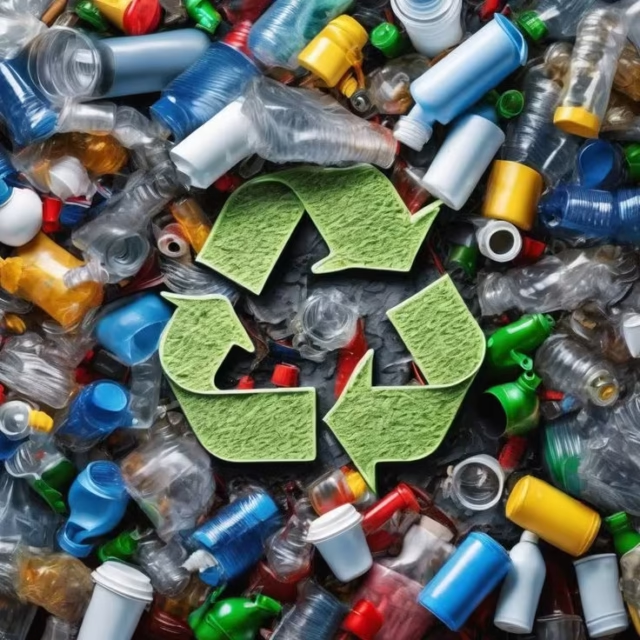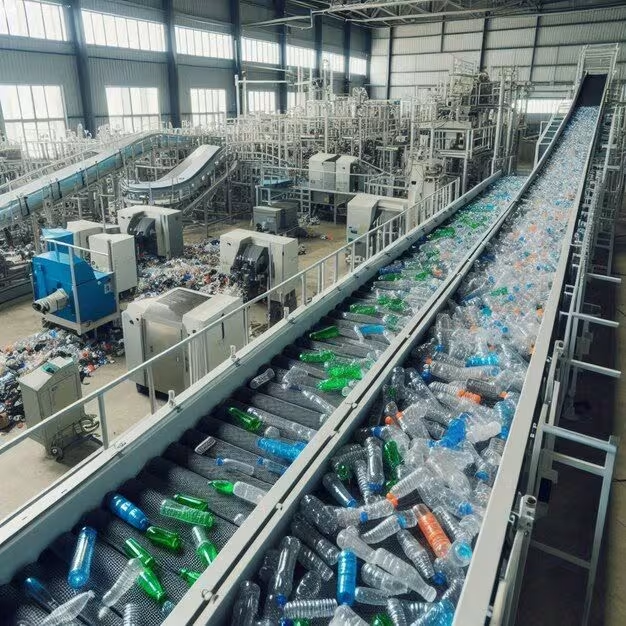Turning Trash into Treasure: How Plastic Waste Collectors in Nigeria Are Making Milions
In neighborhoods like Magodo GRA, you may have even come across organized piles of water and soda bottles at designated drop-off points, waiting to be collected. While it’s easy to overlook these scenes as just part of the urban landscape, they represent a growing business that transforms waste into a reliable source of income for many Nigerians.
One such individual is Ademolu Elijah, a waste collector and supplier from Ijebu Ode. Each week, Elijah provides three tonnes of clean PET (polyethylene terephthalate) bottles to recycling companies. At a price of N500 to N600 per kilogram, this amounts to between N1.5 million and N1.8 million weekly, all from plastic that most people discard without a second thought.
How the Collection Chain Works
Elijah’s experience is part of a larger economy driven by everyday plastic and the individuals who create value from it. In Lagos and Ogun, the PET waste business operates through a structured model that begins with street scavengers and culminates at large recycling plants.
In between, there are aggregators, transporters, and major suppliers who buy, sort, and deliver plastic in bulk. In Ijebu Ode, Elijah collects plastic waste from various sources, including individuals who gather bottles from homes, bars, and street corners. Unlike casual collectors, he focuses on larger volumes.
“For PET alone, I handle about three tonnes a week,” he explained. “White PET is in demand, primarily from water and soda bottles. Non-white bottles, like green or dark ones, are less valuable.” The value chain starts with scavengers who sell PET bottles for as little as N250 per kilogram. Middlemen add their own margins, sometimes raising the price to N400 or more before it reaches large suppliers like Elijah, who then resell to recycling companies for N500 to N600 per kilogram.
Other Plastics and Profit Margins
While PET bottles are the mainstay of Elijah’s business, he also collects other recyclable plastics accepted by recycling plants, such as HDPE (High-Density Polyethylene) used in detergent containers, shampoo bottles, and cooking oil jerrycans, as well as PP (Polypropylene) materials like bottle caps and takeaway containers.
These plastics are typically sourced from street collectors and small businesses. Elijah purchases HDPE at around N300 to N350 per kilogram and PP at about N250 to N300 per kilogram, depending on cleanliness and color. He then resells them to recycling companies for between N400 and N500 per kilogram.

“In total, I gather between five to seven tonnes of plastic waste every week,” Elijah shared. “PET accounts for about three tonnes, while the rest comes from HDPE and PP. This diversification helps balance my trade.” Although these other plastics are not as highly valued as PET, they still contribute significantly to his income. After accounting for logistics, labor, and handling costs, Elijah estimates a profit margin of around 30% across all types of plastics.
Transportation and Declining Supply
In the Ikorodu area of Lagos, Samuel Udom runs a similar operation. He has been supplying PET bottles to recycling companies since 2018. Initially, he could collect up to 16 tonnes per week, but that number has decreased over the years due to changing consumer habits and increased competition.
“Now, I manage between two to three tonnes weekly,” Udom told Nairametrics. “The price of drinks has risen, leading people to buy fewer sodas. Additionally, more individuals are entering the business.” Udom noted that some suppliers spend as much as N100,000 to transport a tonne of plastic to recycling plants, a cost that smaller scavengers often cannot afford. This is why many prefer to sell their materials to larger suppliers who can handle transportation.
“If you don’t have your own vehicle, it’s tough to survive. Fuel and logistics costs are significant,” he added. To cut his own expenses, Udom acquired a truck for in-house transportation, which has helped him remain competitive despite the decline in PET supply.
What Recycling Companies Demand
At the end of this collection chain are recycling plants, such as Stellar International and Lexsz Plastics Limited, which purchase PET bottles in bulk, sort them, and convert them into materials for new products. A staff member at Stellar International, who wished to remain anonymous, explained that while anyone can supply PET, the quality and type of bottle are crucial.

“We don’t accept oily, muddy, or sandy bottles. Clean white PET is our priority,” the staff member stated. “Some green bottles are accepted, but not all. For instance, Alomo Bitters and Supa Komando are not acceptable.” Prices fluctuate frequently; earlier this year, they were buying at N620 per kilogram, but now it’s around N520, influenced by the international market and exchange rates.
At Lexsz Plastics Limited, another staff member shared that while the company focuses on PET, it also separates and resells bottle caps made from polypropylene (PP) to a sister company. The demand for recycled PET is strong, especially from large multinational beverage and consumer goods companies that incorporate recycled content into their packaging. “It’s cheaper than purchasing newly manufactured plastic,” the staff member noted. “Some companies even use it for T-shirts, hand fans, and mattress fibers. Our plant processes PET into materials for pillows and mattresses.” Lexsz currently buys qualifying PET bottles at N600 per kilogram.
Smaller Players, Slower Output
Not every collector operates at the scale of Elijah or Udom. In Maryland, Lagos, Oluwafemi Adebayo, a waste collector, relies on personal networks to gather plastic bottles. “I don’t work with scavengers,” Adebayo explained. “I talk to staff at hotels and restaurants. They collect and store the bottles for me.” Due to his limited sourcing model, he collects about 150 kilograms of PET per week, significantly less than larger suppliers. However, this method provides him with a steady and modest income. “It’s slow, but at least I know the bottles are clean and of good quality,” he said.

The Health Toll of Nigeria’s Plastic Waste Crisis
While plastic bottles provide income for thousands, poor management of plastic waste poses serious long-term risks to public health and the environment. Although PET is widely recycled and considered food-safe, Dr. Doyin Odubanjo, a public health expert and Executive Secretary of the Nigerian Academy of Science, warns that exposure to heat or sunlight can cause plastics to release toxic substances. Over time, they break down into microplastics that can contaminate food and water sources.
“Plastics clog drains, exacerbate flooding, and increase the spread of diseases like cholera and malaria,” he told Naijaeyes.
WhatsApp: NaijaEyes
Facebook: NaijaEyes
Twitter: NaijaEyes
Instagram: NaijaEyes
TikTok: NaijaEyes






